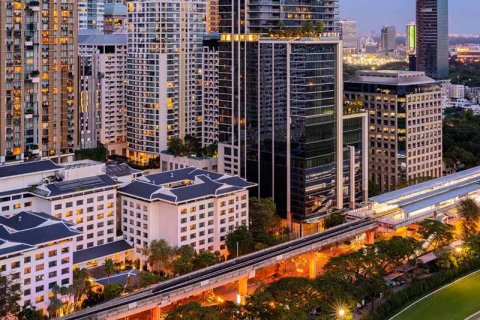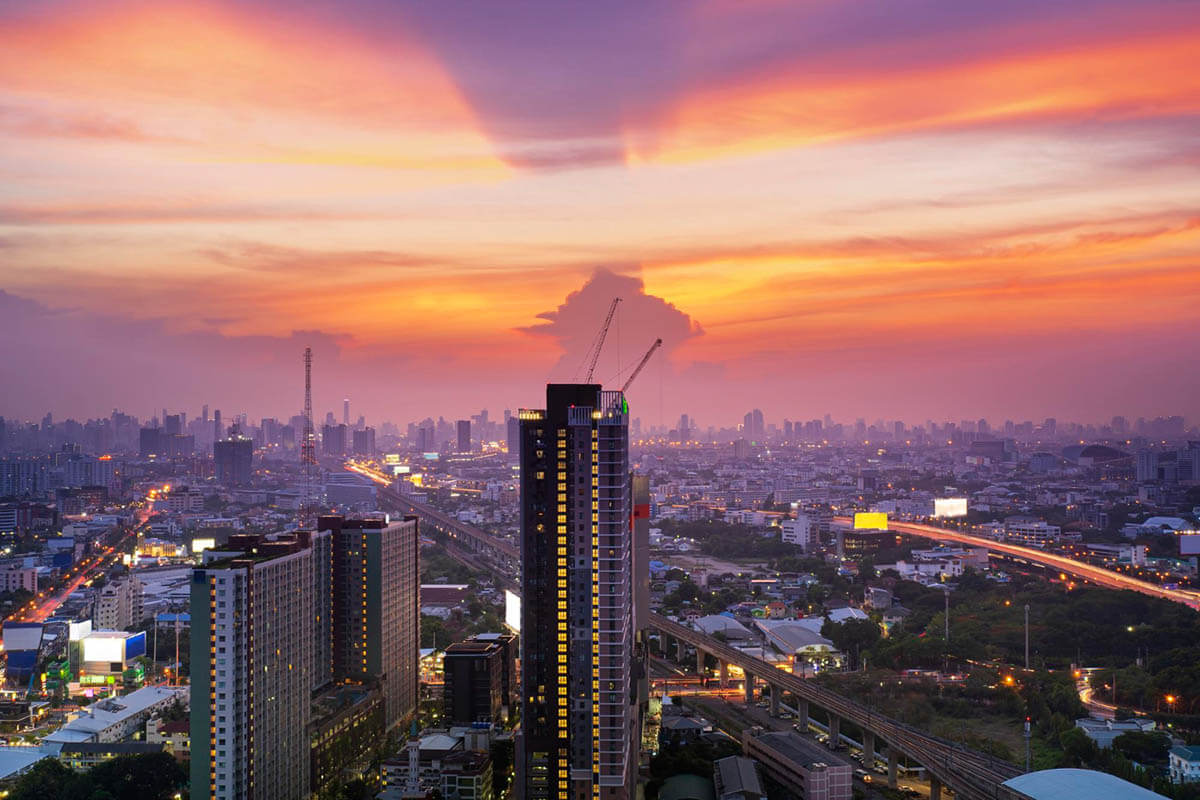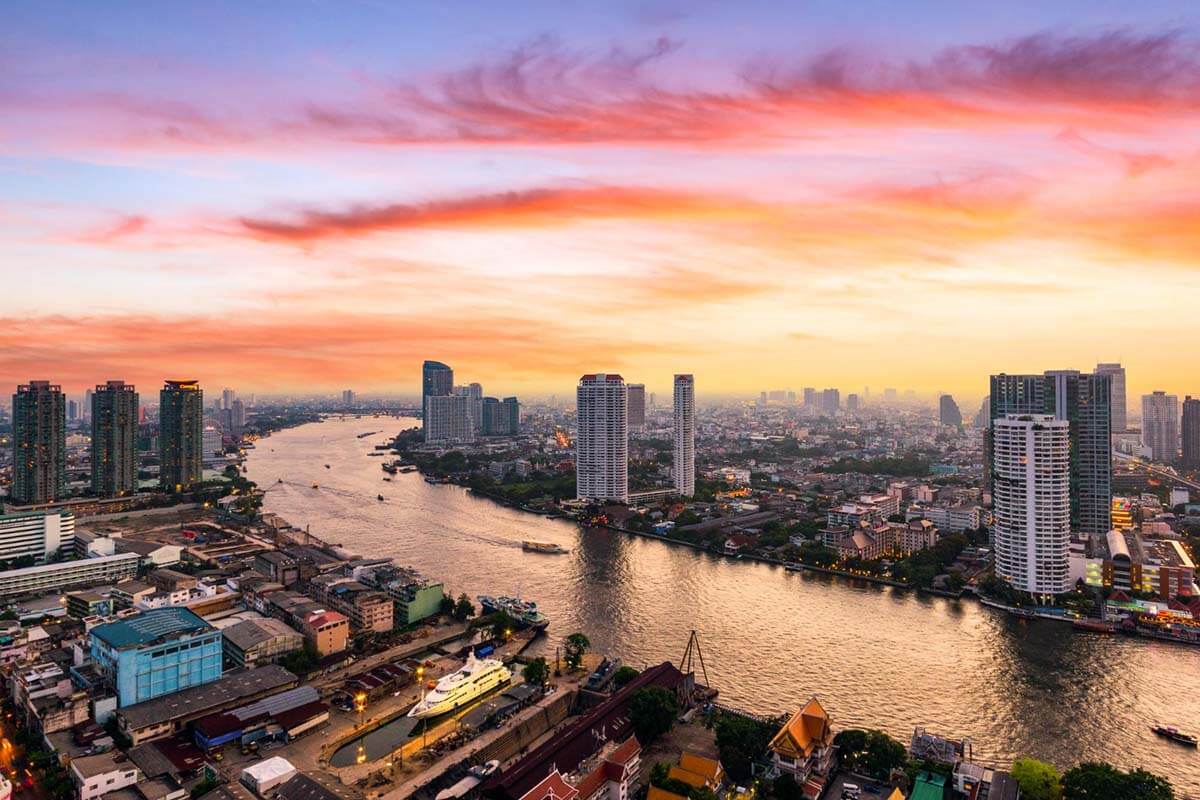
When moving to Thailand for permanent residence, real estate becomes quite an important topic. Rent or buy? House or apartment? If you decide to purchase a property, you need to first choose the best type of property.
Condominium apartments, duplexes (houses for two families), townhouses, and detached houses are the most common in Thailand. Each type of housing has its pros and cons. Let's take a closer look at the main advantages and disadvantages of a house and an apartment.
Content:
Apartment
The main advantages of an apartment
It is cheaper to maintain an apartment. You are only responsible for your apartment. The management company, to which you pay an annual fee, is responsible for the garden and the exterior facade.
Thai residential complexes offer residents many services: coworking, free fitness, and a swimming pool. Mail is delivered to the house so you do not have to go to the post office and the staff accepts parcels from couriers, so there is no need to have to wait for them to deliver.
Apartment buildings are located in areas with more developed infrastructure than areas with villas. Nearby, there may be a metro station, bus stops, shops, restaurants, cafés, and shopping centers. Usually, in residential complexes, there is a small supermarket, and sometimes a café.
Apartment buildings have central communications, which are also serviced by a management company.
It is easier to rent an apartment. A management company can do this for you, and there is no need to involve a third-party agent.
The main disadvantages of an apartment
Apartments are generally small. In Thailand, studio apartments from 23 m2 are quite common. Even the large multi-room apartments have no storerooms or entrance halls, and they only have one bathroom.
You may have a problem with neighbors being noisy and disreputable.
Apartment buildings are usually lively as they are not far from the city center. There can be a lot of noise from the street and traffic jams.
Most apartment buildings in Thailand do not allow pets.
In Thailand, foreign nationals may only own 49% of the property in an apartment building. There may therefore be a situation in which you like the apartment, you want to buy it, but it turns out that the quota for foreign ownership in the building has already been filled, and you will then be denied the purchase. When signing a contract with a developer, he will give you information on the quota, but you need to be mindful when buying a second home, as the Thai owner may not be aware of the foreign quota in the house.

House
The main advantages of a private house
The houses have more space as there are storerooms and storage areas.
If it is a house and not a townhouse or duplex you will not have a problem with noisy neighbors. However, there are neighboring properties if you do want to interact and socialize with them.
You can plant a garden and grow fruit plants on your plot.
You can rebuild/redevelop your house without special permits, and it will not cause inconvenience to the neighbors.
Moreover, you can have pets.
The main disadvantages of a private house
It is more difficult to take care of a house: it entails a lot of work, not only in the house but also in the property itself, as in maintaining the garden. If you want to have a swimming pool on your property, you will need to either maintain it yourself by keeping it clean, filling it up, adding chemicals or else hiring people to do so. You also need to take care of the garden or hire a gardener. It is also complicated to keep the house clean, and often people resort to the help of house cleaners. Inevitably this adds additional costs.
In a private house, you are personally (including financially) responsible for the facade of the house, communications, and pipes.
The bills for water and electricity are high. Due to the larger area of the house, you will need to install more air conditioners or fans. An air conditioner is a device that absorbs the largest amount of electricity in residential areas in Thailand. You also pay for the external and internal lighting.
In a house, you will need to set up your own Internet. Working from home, you will use more data, while in a condominium, you can work from a coworking.
You need your own transport, as houses are often located far from the city’s infrastructure.
Infrastructure is weaker than in areas with multi-story buildings (sometimes, there is almost none).
In Thailand, more insects and lizards usually enter homes, for which you should also be prepared.
The peculiarity of owning a private house by a foreigner is that you can be the owner of the house and rent the land only for a long period. This scares many overseas citizens, but there is nothing dangerous about it. Thailand practices long-term leases (leasehold) for both foreigners and Thais.
In some regions of Thailand, multi-story construction prevails, and in others – private houses. So, in Bangkok and Pattaya, numerous condominiums continue to be built. There are also private houses in these cities. However, there are more private houses on the islands of Phuket and Koh Samui. It is forbidden to build tall houses here because the islands are part of national parks.
To summarize, we can conclude that houses are more suitable for families that need more space. There will be a garden where children can play without having to go somewhere else.
It is however more convenient to go to work by public transport from an apartment located within walking distance of the bus stop.
Private houses are more popular with Thais. Several generations usually live together. Private houses are in demand both in Bangkok and in other provinces. At the same time, young people prefer to rent or buy apartments in the city near their work or near a metro station to make it easier to get to the office. Moreover, there is remarkably high internal mobility in the country: people live and own a house in one province, and work (and own an apartment) in another, in a big city.
To determine the type of housing, you need to give thought to your lifestyle and the reason for moving to Thailand. If you are doing this in search of a quiet life in nature, plan to work, and want to live by the sea, the best option for you is a house. Especially for the family. If you are moving for work reasons and need to be mobile, then an apartment is more suitable.

